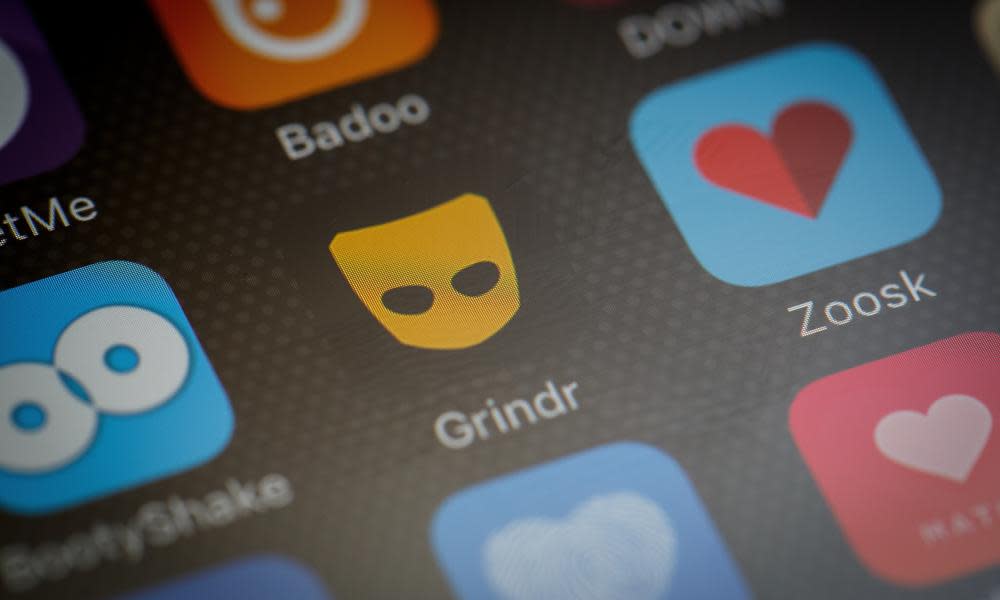Grindr, virtual reality and vlogging: new ways to talk about sexual health

Almost half the world’s population is online and billions of young people use social media. So why doesn’t more sex education happen across these channels? The first Global Advisory Board for Sexual Health and Wellbeing brings together a group of individuals who are using innovative ways to reach more people with information about sex and relationships. Here are some of the projects they’ve been working on:
Grindr to reach patients at risk of HIV in the US
In 2015, Antón Castellanos Usigli, a male nurse working in New York, started working in an HIV/sexually transmitted infections (STIs) prevention clinic at a hospital in Brooklyn. The goal was to increase the number of at-risk patients that came into the clinic for sexual health prevention services. Initially, the clinic tried outreach in clubs and bars in Brooklyn, but not a single client came in through this approach.
Usigli thought about using Grindr, a dating app for gay men, to raise awareness of HIV. He set up a profile as a male nurse to tell at-risk patients about the services offered at the clinic. He then developed a script for healthcare professionals to use.
The success rate has been astonishingly high. In the first month of using the app in this way, more than 20 new at-risk patients came to the clinic for a variety of preventative services, such as sexual health counselling, HIV/STI testing and pre-exposure prophylaxis (PrEP). In little over a year, more than 100 new at-risk patients came into the clinic. Some of those tested positive for HIV and Usigli was able to link them to medical care. Others tested positive for STIs and Usigli was able to treat them.
Virtual sex education aimed at overcoming societal taboos in India
In India, there are high levels of domestic violence , mostly against women. Both women and men refuse to report such crimes to the police. There is also reluctance in society to acknowledge it as a problem.
In June 2017, Love Matters, a website providing information on relationships, sex and love, produced India’s first virtual reality immersive experience on physical, sexual or psychological harm by a current or former partner or spouse. The film, Kya Yahi Pyar Hai? (Is this love?), uses VR to narrate a powerful story and connect with young people.
The film was shown in pop-up VR booths in pubs, restaurants and metro stations in Delhi for 10 days. The results have been overwhelming. In Delhi central station alone, more than 500 people per day went out of their way to sit in the booths and watch the video. Now, people from across the world are looking to screen the film. It will be shown across different locations in India through partnerships with colleges, universities, restaurants and film clubs.
New apps in Georgia
After graduating from Tbilisi State Medical University with a medical degree, Gvantsa Khizanishvili started working with Planned Parenthood, a not-for-profit organisation that provides sexual healthcare in the US and globally, in Georgia.
Through her work, she found that there were no state-supported sex education programmes in many eastern European and central Asian countries, including Georgia. There was also no information targeted at young people – health service providers were not equipped with the skills to meet young people’s needs for information, counselling and confidentiality of services.
To address this, Khizanishvili has developed IntiMate, the first comprehensive youth sexual and reproductive health and rights app in Georgia. The aim is to provide comprehensive sexual health education, raise awareness about the different methods of contraception and sexual health and wellbeing among young people. The app launched in July 2017 and will use social and digital media to provide sex education to young people in Georgia.
Sex vlogging in South Africa
Two thousand women aged 15-24 are infected with HIV every week in South Africa, however most of the HIV prevention campaigns are aimed at men.
During her senior years at medical school in rural clinics, Dr Tlaleng Mofokeng, a GP with an interest in sexual health and relationships, realised that young people did not have access to comprehensive information on sexuality.
She uses her significant social media following to deliver sex education. She also developed a 12-part series called Sex State of the Nation on SoundCloud. The series launched in 2016 and reached a wide audience: the vlog on vaginal health has been viewed more than 5,000 times and the one on safe oral sex more than 4,500 times. Her weekly column in the Sunday Times ZA continues to be in the top five most read articles online with a reach of more than 300,000 people.
Sofia Gruskin is the chairperson of the global advisory board for sexual health and wellbeing. She is a professor at the University of Southern California.
Join the Healthcare Professionals Network to read more pieces like this. And follow us on Twitter (@GdnHealthcare) to keep up with the latest healthcare news and views.
If you’re looking for a healthcare job or need to recruit staff, visit Guardian Jobs.

 Yahoo News
Yahoo News 
